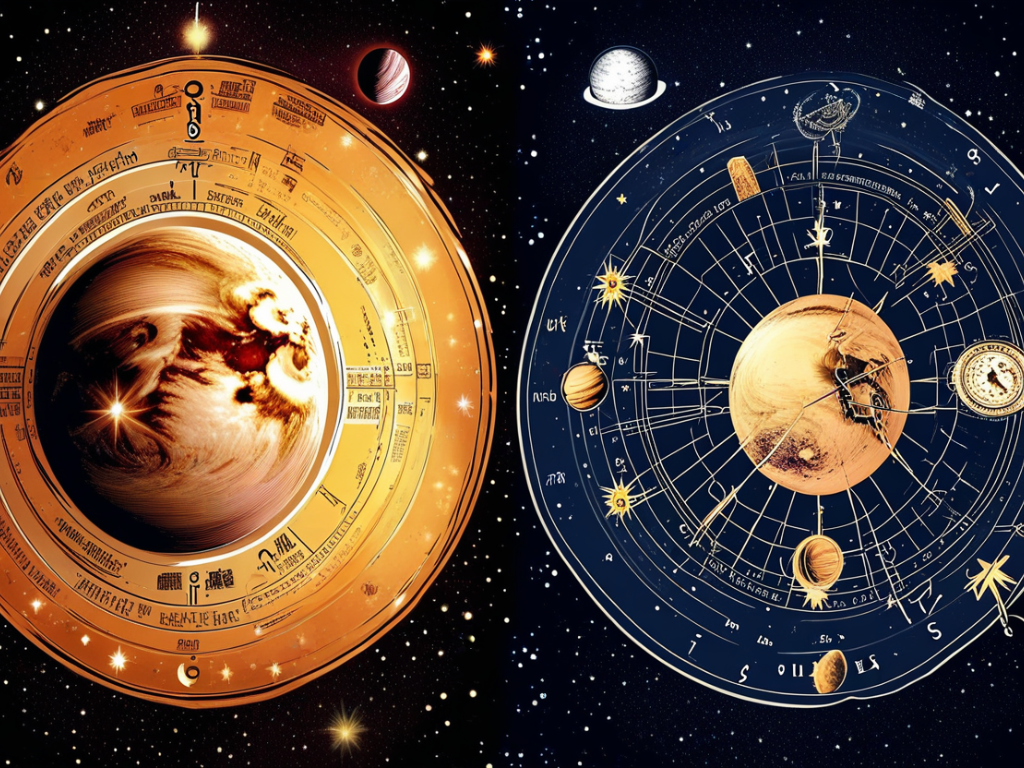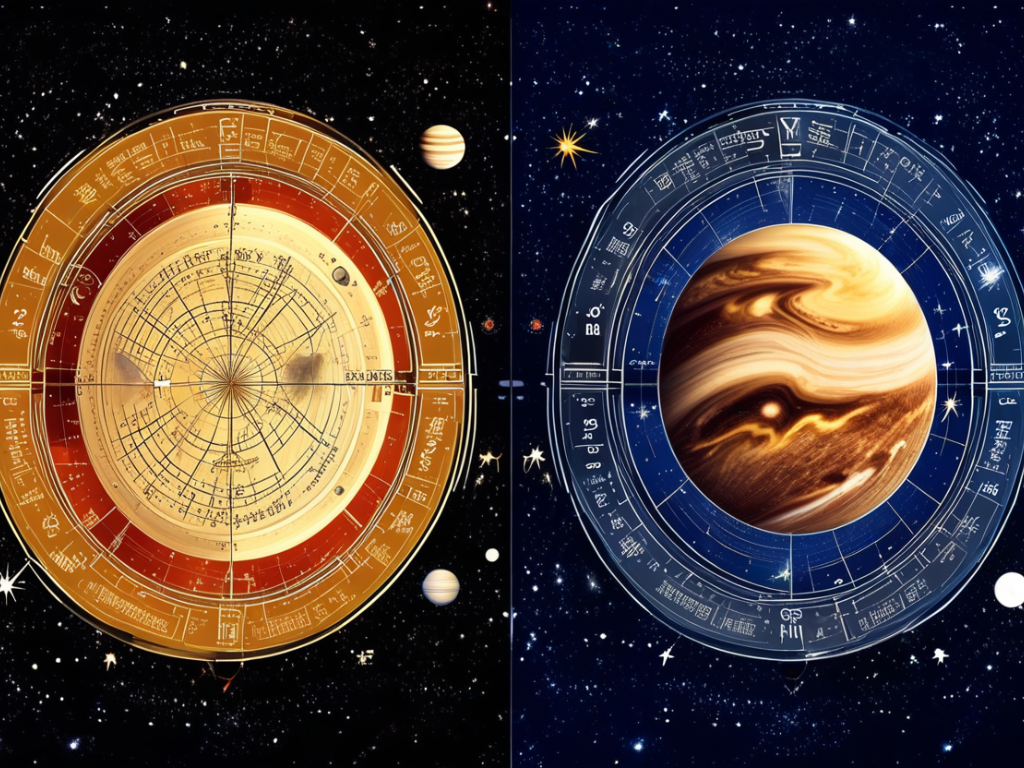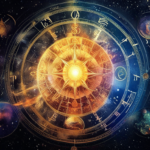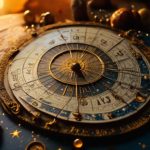Astrology vs. Astronomy: Key Differences and Interesting Facts

Imagine gazing up at the night sky. It’s ablaze with countless stars, each one a world of its own, studding the inky black expanse like a celestial blanket. As humans, we’ve looked to this vast firmament in both awe and wonder. This fascination has given birth to two very different, but intrinsically interconnected fields — Astrology and Astronomy. Yes, they may share a few letters and both find their roots in the cosmos, but they are fundamentally unique in their purpose and perspective.
With roots that reach back to the dawn of human civilization, Astrology is akin to the whispers of our ancestors, a universal language, creating a bridge between the earth and the cosmos. An astrologer translates the cosmic script, offering individuals pathways to self-understanding. Envision the twelve signs of the zodiac as twelve unique keys, each opening different doors within the enigmatic mansion of our existence.
On the other hand, Astronomy is science’s love letter to the universe. It’s the cold, calculated lullaby of the cosmos expressed through equations, principles and laws. Astronomers are cosmic detectives, sleuthing through the universe’s vast mysteries using telescopes as their magnifying glasses, revealing the physical realities of stars, planets, and galaxies.
Astrology is the art of celestial possibility, while its counterpart, Astronomy, operates within the realm of celestial reality. Astrology whispers in our ears that we are not just tangibly connected to this universe, but also we’re emotionally and spiritually entwined. Astronomy scientifically deciphers how the planets move, but Astrology walks a step further, attempting to understand how these movements might influence the labyrinth of human life, feeling, and behavior.
Now, let’s delve a little deeper into these fascinating parallels that paradoxically seem to exist worlds apart.

One of the key differences lies in the framework of study. Astronomy employs scientific methods and tools, governed by the laws of physics, conducting detailed observations and mathematical calculations. Professional astronomers usually specialize in certain celestial phenomena like black holes, nebulae, or the origins of the universe.
Astrology, while also studying the cosmos, takes a more personal approach. It leaps beyond the physical dimension, suggesting a meaningful correlation between celestial arrangements and human experience. Astrologers are more like spiritual counselors, exploring horoscopes to offer insight, using the constellations as a cosmic map to our personality, emotions, and life path.
Another difference concerns the zodiac systems employed. Astronomy adheres to the sidereal zodiac, based on the positions of the constellations. Astrology, especially Western astrology, often uses the tropical zodiac, which is fixed to seasons, thereby creating a discrepancy in the celestial coordinates. This results in the “precession of the equinoxes,” thereby forging the phenomenon of the ’13th zodiac sign’, Ophiuchus. However, the use of zodiac systems can vary among different astrological traditions.
Throughout history, these two fields have danced an uneasy waltz as human understanding of the world advanced. While once indistinguishable, the scientific revolution separated them into two distinct disciplines. Many argue that the distinction rests in empirical evidence: while Astronomy can offer tangible proof, Astrology’s assertions are harder to measure. However, Astrology, with its cosmic perspective, can offer solace, comfort, and guidance to those navigating the oftentimes stormy seas of human existence.
Yet, in their unique ways, both fields possess a singular fascination for the cosmos. Despite its scientific rigor, Astronomy still holds room for wonder, curiosity, and awe while exploring the universe’s grandeur. And Astrology, amidst its spiritual guidance, invites us to an empowering dance of self-discovery and transcendence.
So, whether you resonate more with the empirical call of Astronomy or the spiritual lilt of Astrology, remember that both are kaleidoscopic lenses through which we can appreciate the cosmos. Each, in its own way, allows the universe to sing its myriad tales of existence, helping us to understand our place in the grand cosmic theater where we all play our part. Navigate life with an open mind, embracing the knowledge and wisdom these distinct yet interconnected fields have to offer. After all, the universe unfolds itself through myriad stories and whispers from the cosmos. Each one of us possesses a unique gift to understand these tales, whether it be through the equations of an astronomer or the celestial narrative of an astrologer. Find your voice within this vast cosmic choir and let your song be heard.




